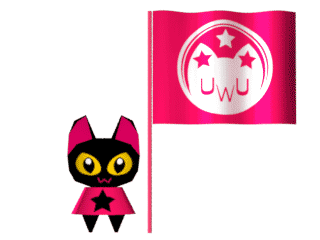
Syndical Crossing is meant to be a cute, fun critique of the extractive capitalist tendencies of the better-known game to which it pays homage.
The player enters the world of Farband, a land of many nations, peoples and faiths, still reeling from the aftermath of the Great General Strike.
I kept wondering what a different mode of gameplay might look like, that sought to capture the fun of the Animal Crossing series while counteracting its inherently consumerist and capitalist mechanics.
I am the kind of person who cannot help but critically engage with the media I consume and interact with. While playing Animal Crossing: New Horizons, I made these casual observations:
- Most of the island workers are permanently confined to their job-site. Isabelle, Blathers, Tom Nook and his nephews never appear outside except on very rare occasions. Isabelle can often be seen gazing longingly out her office window, at a world of exploration and creativity from which she is explicitly barred. Blathers appears to have no home, sleeping all day in the museum in a position from which he never moves, with few exceptions. Kapp’n sings of his family at home but is never allowed to leave his boat by the dock.
- All of the heavy constructive labor of the island is completely invisible. Whenever a new building is constructed or an existing structure altered, the labor who perform the task are obscured and alienated from the player.
- Everything in the game is transactive, with nothing given nor received for the joy or generosity of it. Gift anything to an islander and they feel compelled to give you something in return.
- All knowledge is commodified, taking the form of DIY recipes or Nook-phone apps. Once a player learns a new recipe, the card from which they learned it vanishes, making all knowledge functionally “single-use.” The player is unable to teach what they’ve learned to any other residents. Likewise new phone applications cannot be shared.
- The natural world of the game exists solely to be commodified. Everything from the smallest clump of weeds to the largest tree serves only an extractive, productive purpose—and everything has a cost and a price in the market.
- In fact, almost every commodity in the game has no use value whatsoever, only exchange value. Extract the necessary resources to construct a bicycle and you cannot ride it. Chop down every tree, break every rock, pluck every piece of fruit on a different island and it doesn’t matter—nature’s entire purpose is to provide resources for production.
- Most tools in the game break after anywhere from 10-30 uses, and cannot be repaired, requiring the player to craft or purchase a brand new tool every time. Even tools which do not see stressful use—such as watering cans—break in this way, necessitating the purchase of a new can, or the extraction of further resources to produce a new commodity. This sort of planned obsolescence will be familiar to the modern consumer.
- The primary player fills the role of supreme dictator on the island. The player can enact arbitrary legal ordinances to suit their mood, force residents to participate in compulsory stretching exercises, move residents’ homes at will, and instruct Isabelle to issue warnings if a resident does not dress or act exactly how the player likes.
